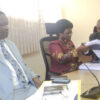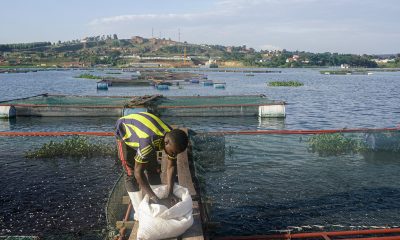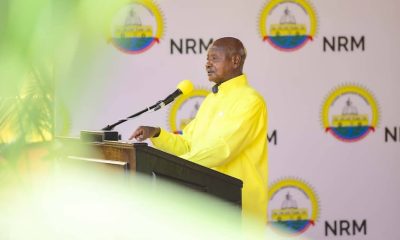News
UGX20bn Nile water monitoring project launched

Kenya’s deputy President Dr. William Ruto shakes hands with NBI’s Executive Director Prof. Seif during the recent Nile-COM meeting held in Nairobi, Kenya
A US$5.5m (Approximately UGX20bn) project that will monitor water levels and flows in lakes and rivers across nine member countries of the Nile Basin has been launched in Kenya. It will be implemented and coordinated by the Nile Basin Secretariat based in Entebbe, Uganda. Experts from different institutions have hailed it as a crucial project that will help technical people in government departments to plan and implement projects using reliable data.
The Nile Basin Regional HydroMet Project, considered as the first of its kind since the establishment of the Nile Basin Secretariat in , was launched by Kenya’s Deputy President Dr. William Samoei Ruto at the opening of Annual Nile Council of Ministers Meeting (Nile-COM) that was held in Kenya’s Capital Nairobi.
Under the project, the NBI will establish monitoring equipment in different locations of the Nile Basin, which will gather data and transmit it directly to the Nile Basin Secretariate as well as to the computers in the member country.
Egypt, which frozen active participation for a couple of years now, is the only country that will not participate in the latest Regional Hydromet project. Other members of the community and will participate in the project are; Burundi, DR Congo, Ethiopia, Kenya, Rwanda, South Sudan, Sudan, Tanzania and Uganda.
The nine participating countries will have the opportunity to access data from different points by requesting it through the NBI secretariat.
The first Hydrometeorological Survey of the Equatorial Lakes region, which took place between 1968 and 1975 involved only a few member countries Uganda, Kenya, Tanzania, Sudan and Egypt. It was started on the request of Egypt following a sudden huge increase in water levels in the Nile that destroyed several infrastructure projects on the river.
Although Egypt has frozen its participation in the NBI activities over the past couple of years, the launch of the Regional HydroMet Project is seen as a sign of determination by member countries to push forward with closer cooperation in using the Nile’s water resources. Egypt insists that countries observe the colonial-era position that it continues to wield veto power over all developments on the Nile river, which other member countries reject and instead want to use cooperation as the basis for determining what projects should be developed by which country.
Speaking during the opening ceremony of the Annual Nile Council of Ministers meetings (Nile-COM) that was held in Kennya’s Capital Nairobi, Dr. Ruto said: “The HydroMet System is designed to provide more reliable data and information for water resources management including flood disaster preparedness, coordinated management of water storage dams, navigation and improved adaptation to climate change.”
He used the opportunity to announce that his country intends to convene a second Nile Basin Heads of State Summit. The inaugural Heads of State Summit was held in June 2017 and was hosted by Uganda’s President Yoweri Museveni in Entebbe.
Addressing the gathering as outgoing Chairperson of the Nile-COM, Dr. Deo-Guide Rurema, who is also Burundi’s Minister of Environment, Agriculture and Livestock, encouraged Member States to continue working towards finding lasting solutions to the various challenges in the Nile Basin.
“The delay in agreeing and adopting a legal and institutional framework has resulted into delays in the establishment of the permanent Nile River Basin Commission. It is my sincere hope that Member States will take bold steps towards adopting a common framework that will raise our level of engagement and facilitate harnessing benefits of the cooperation,” he said.
Comments
























